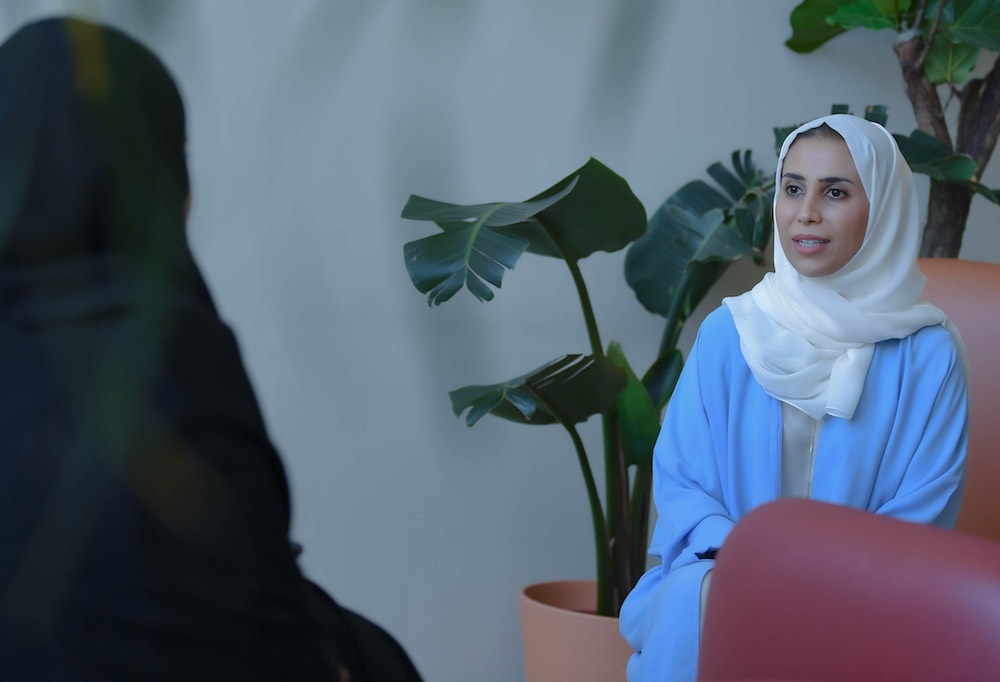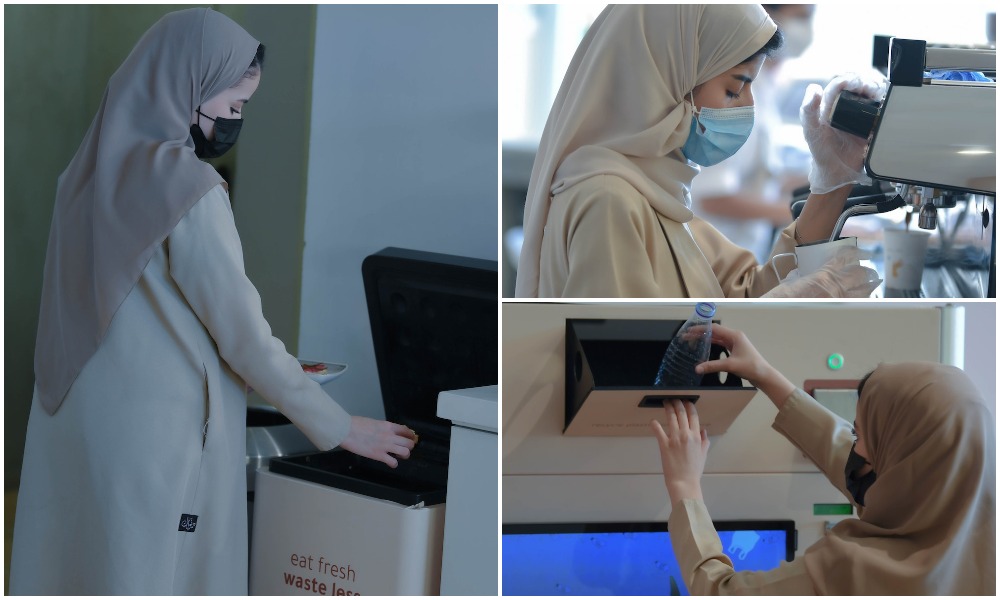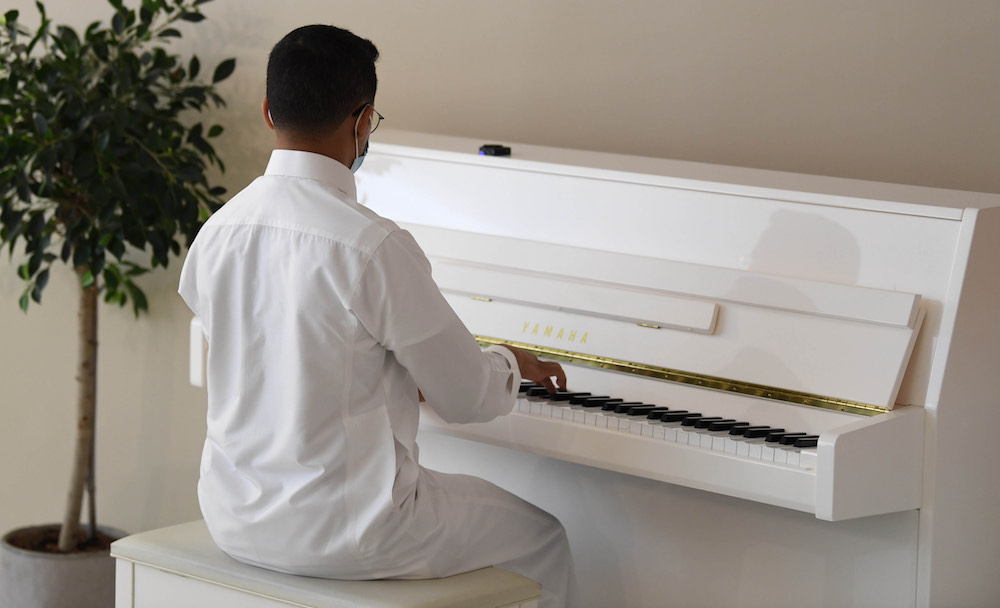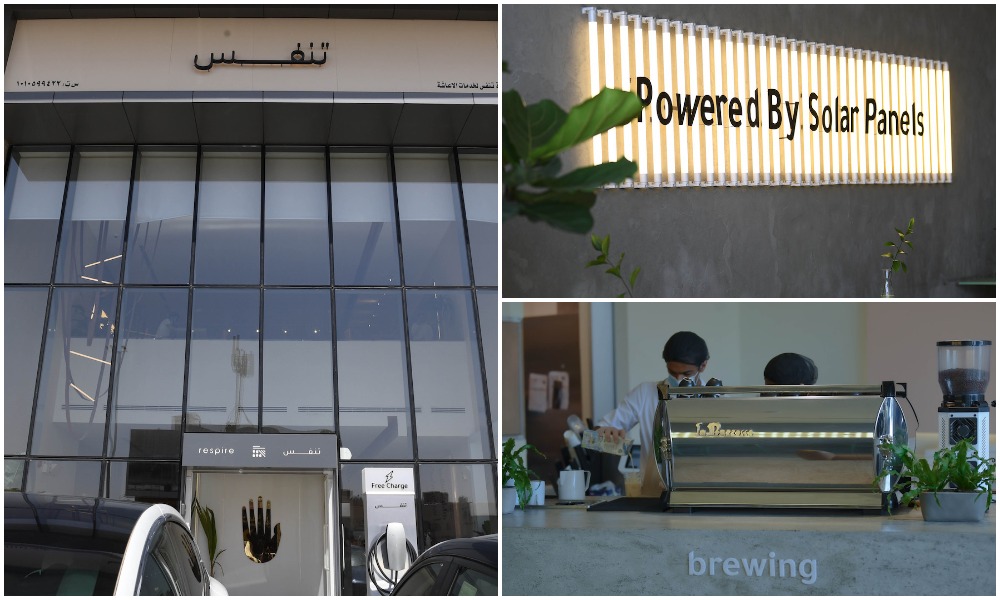RIYADH: From Tesla chargers to a recycling vending machine, a Saudi cafe has become a hit for providing accessible environmental technology through the language of coffee.
Respire Lounge is the first cafe of its kind in the Kingdom. It is an environmentally sustainable cafe run by using eco-friendly technology with the mission of promoting a greener lifestyle to the public.
Located in the capital of Saudi Arabia, Respire Lounge at first glance appears to be just like the thousands of coffee shops in the city. But after a closer look, visitors are taken into a showroom filled with environmental technology.
“We are creating quality air,” Ohoud Al-Shamikh, the owner of Respire Lounge, told Arab News.
“We want to invest in technologies that relate to the environment and reduce waste. It is all about providing quality air for the planet and reducing the carbon footprint. This is the vision for this country. Now we are creating cities that are based on green concepts or green programs.”

Ohoud Al-Shamikh, the owner of Respire Lounge, speaking to Arab News. (AN Photo)
For years, coffee shops have played a major role in the social life in Saudi Arabia. People gravitate to cafes and lounges as meeting hubs of the Kingdom.
Al-Shamikh said she decided to use the language of coffee to create a showroom for sustainable living.
“I make these technologies available for people to see. They touch. They feel it. They live with the experience of it,” Al-Shamikh said.
“The solar panels we have or the reverse vending machines or the food recycling machines — it is all available technologies. It is just about bringing it and putting it in one place that makes it a reality for people.”
After some of the lounge’s videos went viral on TikTok, Respire quickly became popular for the reverse vending machine concept. Guests can deposit used and empty water bottles in exchange for a free coffee voucher as a “token of appreciation.”

Since its opening, Respire Lounge has created 10 jobs for new Saudi university graduates and has provided part-time employment for 15 more Saudis. (AN Photo)
“Tiktok communicated the message to the younger generation and they drove their families to these initiatives,” the owner said.
News spread quickly about the reverse vending machine. Within a month, Arab News visited the cafe to find many people carrying multiple bags of empty water bottles ready to be recycled.
“Honestly people walk in with 100 to 200 empty water bottles and they just want to do a good thing for the environment,” Al-Shamikh said.
Besides reverse vending machines, Respire Lounge has five other initiatives that provide eco-friendly options to people.
The lounge provides two Tesla wall connectors for free charging and a cup of coffee as an incentive to anyone who brings their American electric vehicle to charge.
The lounge also aims to limit food waste as much as possible using a food recycling machine. Any leftover food from the lounge is inserted into the compost machine and turned into fertilizer for the plants in the lounge.
Solar panels are used to operate all of the refrigerators through clean energy. Al-Shamikh also plans to reinvest profits from the lounge to expand the solar panel project.

The lounge creates a feeling of openness and calmness, and builds a sense of comradery and relationship between people through their love for the environment. (AN Photo)
Respire Lounge was born amidst the coronavirus pandemic. Many people initially advised against opening the lounge fearing that it may not succeed due to the economic circumstances. However, Respire opened its doors in November 2020 and within a month, it grew to be a success.
Al-Shamikh explained that people in Saudi Arabia have a passion for protecting the environment.
“People have it in themselves,” the owner said. “They want to do this for the environment. They want to protect. Even without a cup of coffee people still walk in and recycle.”
Saudization is another initiative of Respire Lounge. Officially known as Saudi nationalization scheme, or Nitaqat, the policy has been implemented by the country’s Ministry of Labor and Social Development, whereby Saudi companies and enterprises are required to fill up their workforce with Saudi nationals up to certain levels.
Since its opening, Respire Lounge has created 10 jobs for new Saudi university graduates and has provided part-time employment for 15 more Saudis.

Respire Lounge is the first cafe of its kind in the Kingdom. It is an environmentally sustainable cafe run by using eco-friendly technology with the mission of promoting a greener lifestyle. (AN Photo)
The interior of the lounge reflects the concept of respiration and calmness. Each of the chairs in the lounge are armless and use a very ominous color theme.
The lounge creates a feeling of openness and calmness, and builds a sense of comradery and relationship between people through their love for the environment.
Elaborating on the business model, Al-Shamikh said environmental technology is not profitable alone for a small business as a major share of the lounge’s income comes from coffee and desserts sales.































